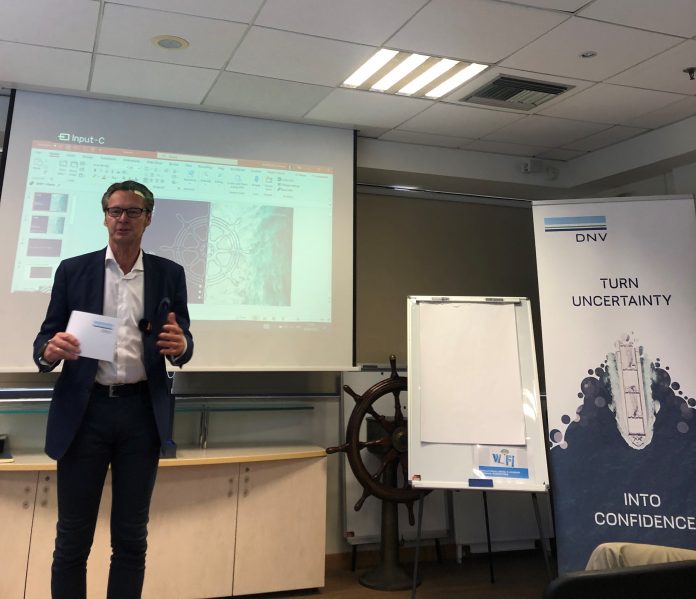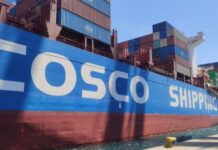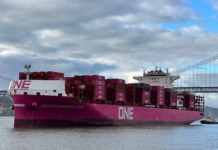
The shipping industry, as well as the whole world, has great difficulty in achieving the climate goals set by the Paris Summit, according to Knut Ørbeck-Nilssen, CEO of DNV – Maritime, who spoke at a press conference of his company today (3 June) in Piraeus, Greece.
The answer to the problem is initially the further strengthening of innovation and at the same time, the extensive cooperation to find solutions, according to DNV – Maritime leader.
Container News attended the press conference, held in view of the shipping exhibition Poseidonia (6-10 June), at the DNV offices in Piraeus, where Ørbeck-Nilssen raised another two important topics.
The first was the 100th anniversary of DNV in Greece, which actually was in 2021, but it is officially celebrated this year.
As he said with a dose of humor, “100 years is just a blink of an eye in Greek history, but naturally for a corporation, is quite a long presence in Greece.” DNV in Greece has managed to be a classification society in 850 ships at the moment, recording a great growth, especially during the last decade.
Ørbeck-Nilssen highlighted that in just seven years, from 2015 until today, the number of employees in the company’s offices in Greece has increased from 65 to 100.
DNV – Maritime CEO emphasised that the Greek shipping industry has shown “remarkable work” in recent years to face the Covid-19 pandemic difficulties, helping the supply chain to move smoothly. In addition, he paid tribute to all the seafarers, many of whom are Greeks, who were on ships during the pandemic period.
Furthermore, of particular interest was the presentation of Ioannis Chiotopoulos, senior vice president (SVP) & regional manager of SE Europe, Middle East & Africa, who highlighted difficulties related to climate regulations that the Greek shipping industry will face in the future.
Chiotopoulos noted that Greece has very old technology ferries for short distances which emit a lot of pollutants and are expected to be asked to change them with more ecological ones.
It is therefore an opportunity, according to DNV SVP, for the country to achieve this on its own terms, taking the appropriate know-how from other countries such as Norway, which have already succeeded at this issue.
However, there is a need for collective willingness and partnership between the public and the private sector, according to Chiotopoulos.
Finally, the issue of future fuels in the shipping industry was also discussed. Christos Chryssakis, business development manager at DNV – Maritime, pointed out that the trend shows that there won’t be just one fuel used by all, but two to three, which will be selected each time, depending on the needs and capabilities.





